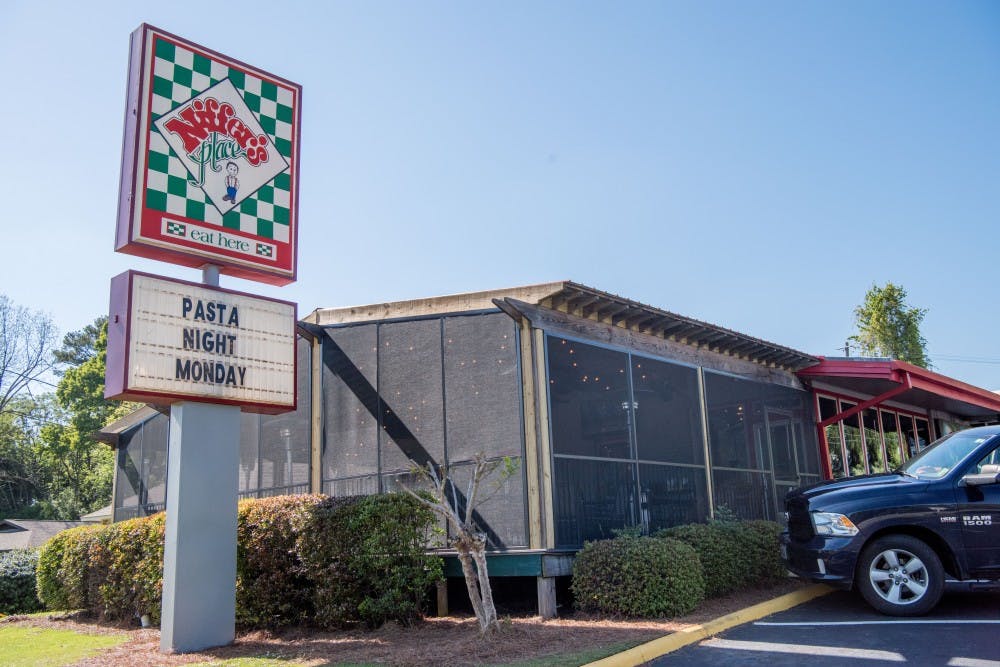As the coronavirus pandemic continues to wreck norms for businesses across the world, workers and owners are coping with an unprecedented financial and economic situation.
Many Auburn businesses are in uncharted territory as they deal with the uncertainty of the virus and the decrease in business that accompanies social distancing — a measure health officials say that everyone must take to slow the spread of the disease.
At Niffer’s Place, a local restaurant chain, sales declined soon after restrictions were put in place upon on-premise consumption.
“In the beginning it was pretty slow. We were feeling it. We were getting hit pretty hard,” said Mary Myers, operations manager at Niffer’s Place.
Niffer’s has three locations: Auburn, Opelika and at Lake Martin. The company chose to close the Opelika location until they are allowed to once again serve food on premises, at which point they plan to open up the location once again.
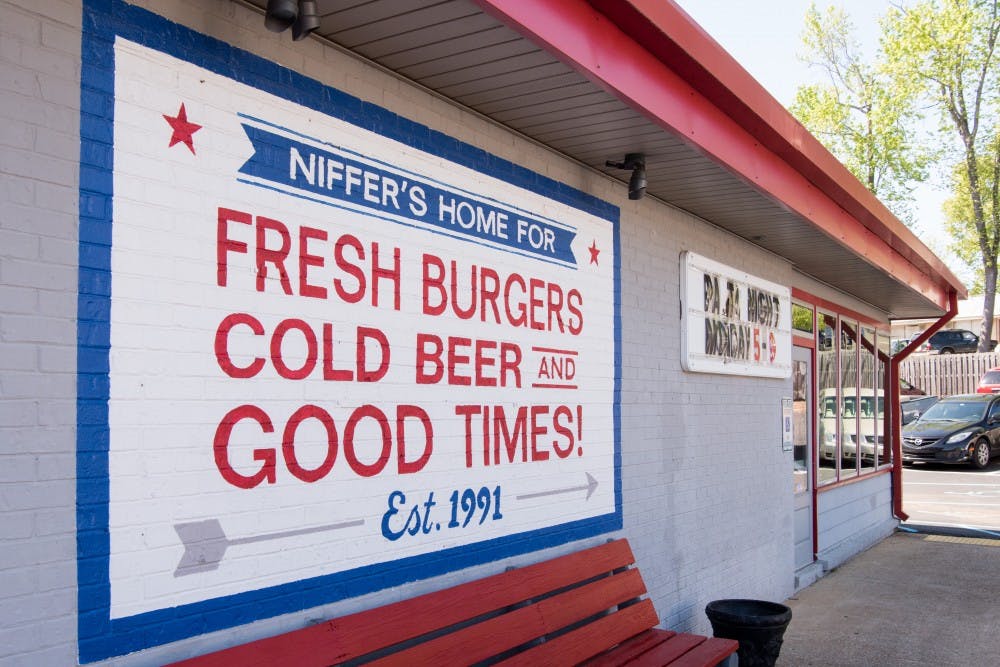
Niffer's Place in Auburn, Alabama.
Closing the location has allowed the company to save money on costs, Myers said.
“When the decision to close it down was made, it was just basically so that we could save money, downsize some of our inventory, push it through some of our other stores,” she said. “The power bill is huge. So if we could just stop any of that kind of money bleeding out from us, that was going to be a big help.”
Those who worked at the Opelika location have either been transferred to one of the two other locations or elected to stay home, Myers said.
While the first weekend of restrictions was a time of very slow business, they’ve since rebounded. Much of what has allowed the business to stay viable is maintaining an online presence, Myers said. Owner Keely Beasecker began posting videos on the company’s Facebook page and sending messages to family and friends, encouraging them to order food or purchase gift cards. Once word spread from the videos, sales for the restaurant increased dramatically, she said.
“Right now, we’re on a good momentum,” Myers said. “The community has really been awesome and rallied around us and have tried to help in any way they can.”
The Art Studio is a collection of art teachers who offer courses on art etiquette and instruction to students and other artists in Auburn. Due to COVID-19, all instruction held in the studio has been canceled indefinitely.
“It is a devastating blow to our business,” said Michelle Giddens, owner and instructor at The Art Studio. “We were set to begin spring classes March 23 and obviously that did not happen.”
In the meantime, The Art Studio will begin online courses on April 13. These online classrooms will offer courses to kids, teens and adults about different techniques of drawing, painting and mixed media.
“We want to continue to provide supportive, inspiring and creative small group classes for kids, teens and adults,” Giddens said.
The Art Studio also makes and sells art boxes. These kits provide everything needed to make art at home. Since the switch to online, people began buying these kits in higher demand, Giddens said, and they deliver them twice a week.
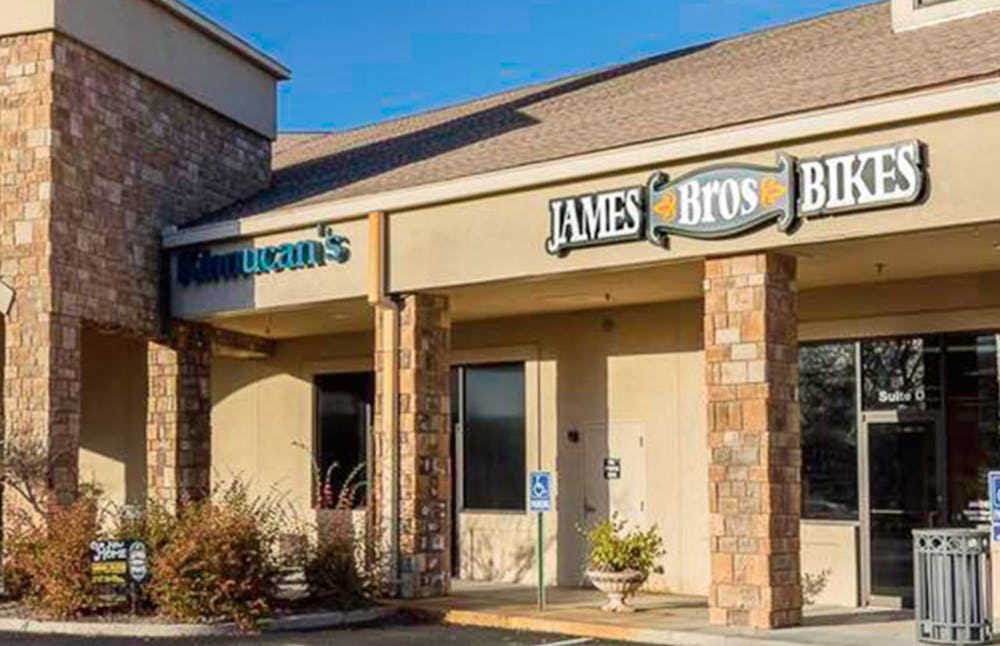
James Bros. Bikes remains open during the pandemic and, because bike stores are included in Gov. Kay Ivey’s list of essential businesses, is currently not at risk of being forced to close. Eddie Lindley, owner of the bike shop, said that he still keeps the same amount of employees in the store as before the pandemic and intends to do so in the future.
There have, however, been a few adjustments.
“We’ve changed kind of how we do some things,” Lindley said. “We’re offering pick-up and drop-off services for customers that want to stay inside.”
Many customers still choose to go inside the store for traditional shopping, which has actually seen pretty good traffic, Lindley said.
“I think with a lot of families being at home and gyms being closed ... a lot of people are finding cycling as being kind of a nice alternative,” Lindley said. “Especially since the weather has been good as well, after such a wet winter.”
Business normally picks up in the spring, Lindley remarked, so this uptick in revenue wasn’t unexpected. But business is still a little bit slower than normal — “not what it was a year ago.” This is perhaps caused by the loss of income some residents are experiencing, Lindley said.
“We’re an expendable income situation; if people don’t have expendable income, we’re one of the first things that will go,” he said.
Lindley said he’s planning to take advantage of the resources that the government is providing to small businesses, such as aid and forgiveness on late tax payments, but the way things are being handled is still a worry.
“Small businesses only have so much cash flow, and if you’re not doing business then, you know, the rent still comes due, insurances are still due, payroll still comes around,” Lindley said. “You can only do it for so long before it becomes an issue.”
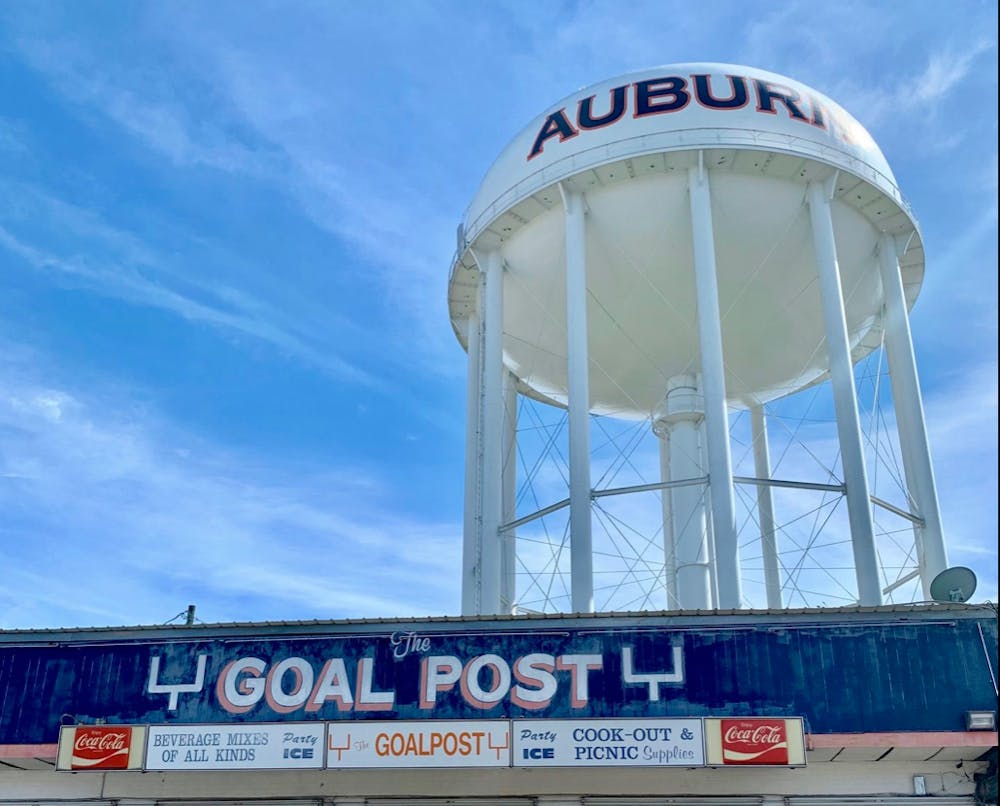
Other businesses are feeling the decrease in sales more acutely. The Goal Post, a local convenience shop on the corner of East Glenn and North Donahue, has seen less customers since the outbreak. Muhammad Khan, manager at the Goal Post, said they have been seeing fewer and fewer people by the day.
“There used to be a lot of people just walking through outside,” Khan said. “We don’t see them anymore; they are all staying inside.”
Because of the reduced business, Khan has had to change the normal operating business hours.
“Before, we used to come in at 7 a.m. everyday,” Khan said. “Now we come in at 8 or 9 a.m., and we have to close up early too.”
Khan said he hasn’t had to let go of any employees yet due to the slower business, and he hopes it stays that way. Not all businesses have been able to say the same. Troy Marable, store manager of Auburn’s Mountain High Outfitters location, said he has had to change all the normal operations of the store since the outbreak.
“It’s been really tough. I’ve had to furlough about 90% of my staff,” Marable said. “We are basically closed, but I still show up. Like, no one is allowed in except me and some of the staff.”
Marable said it was irresponsible to keep the store open as a retail store and wanted to take social distancing seriously.
“No customers are allowed in; people can order over the phone or online, and I can run it out to their car,” Marable said. “We’re basically just a fulfillment center that takes calls.”
Marable said he is hoping that with the various governmental resources being offered to support small businesses, he will be able to keep the shop running.
“It’s been quite the adjustment,” Marable said. “The store managers are still here to watch over things, but it’s not great. Almost everyday, I am here from 9 a.m. to close, and like I said, I have had to cut most of my staff, but for the time being we are trying to stay optimistic.”
Marable said he and his employees are working on what they can control: their attitudes and demeanor during this confusing time.
“I have been trying to make sure my staff is doing okay as people, since they are basically all students,” Marable said. “We are trying to look forward and work on what we can control.”
Marable said he and his staff have been taking the change one hour at a time and watching how things develop. But things are uncertain right now, and that’s something he has to deal with.
“For now, things will continue the way they are,” Marable said. “Who knows — tomorrow, the government may recommend something else. We just have to stay on our toes.”
Another business, Cigar & Fine Spirits, is struggling with keeping their business going while being partially open. The shop functions as both a bar and liquor and humidor store, but the bar has since been closed.
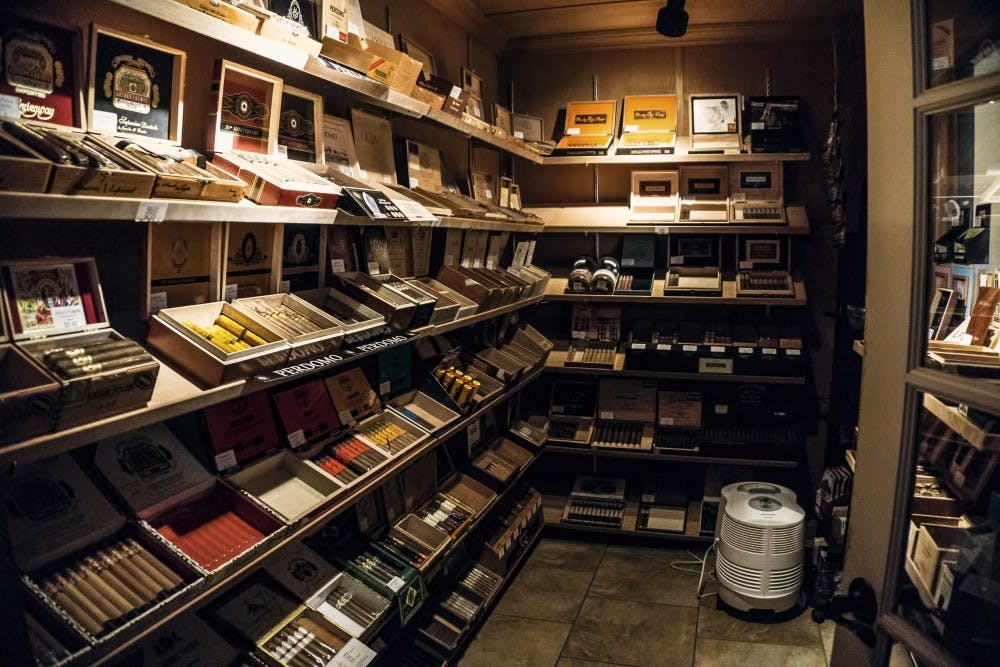
A Humidifier controls the climate of the cigar retail area in Cigar & Fine Spirits, a fine-dining restaurant, cigar and liquor retailer, and cocktail bar in Auburn Al, August 25th 2015. (David Topper | Photographer).
Andrea Purdy, the store manager, said the closure of the bar has affected their store immensely.
“Normally the liquor store is a small side supplement of the bar,” Purdy said. “The bar is definitely what makes the bulk of the income, so this has hurt us really, really bad.”
Purdy said that they have not had to cut employees yet and have even raised their hourly rates to help with the lack of funding from bartending.
“There are only four bartenders, so now their hourly rates have increased,” Purdy said. “And they are allowed to accept tips at the liquor store because a lot of the people who come in are regulars who want to tip and help out.”
Purdy said that a lot of the customers are doing what they can to help out the bartenders and keep the store open.
“A lot of the regulars are still tipping, even on things you wouldn’t normally tip on,” Purdy said. “They still pay 20% gratuity on a bottle of vodka to support the bartenders.”
Purdy said the hours of operation have also been greatly reduced. Basically, the plan is to scrape by until they can reopen, Purdy said.
“I think we should be OK if this only lasts another month,” Purdy said. “If it goes on longer than that, we may have to close down permanently because we might not be able to keep employees and things like that.”
Do you like this story? The Plainsman doesn't accept money from tuition or student fees, and we don't charge a subscription fee. But you can donate to support The Plainsman.

Evan Mealins, senior in philosophy and economics, is the editor-in-chief of The Auburn Plainsman.

